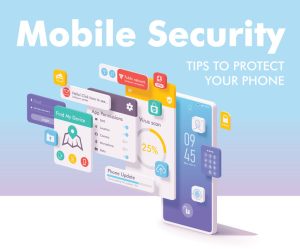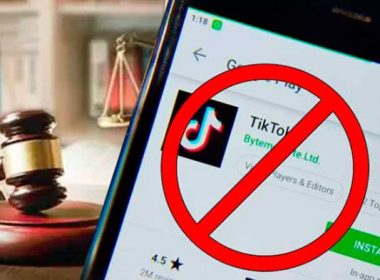Mobile Security Tips
For most of nowadays, mobile phones are an absolutely integral part of our lives. It’s easy to take them for granted and we only realize how important they are when something bad happens to them. Many of us don’t really take enough care of them, even though losing them or having them compromised in some […]

For most of nowadays, mobile phones are an absolutely integral part of our lives. It’s easy to take them for granted and we only realize how important they are when something bad happens to them. Many of us don’t really take enough care of them, even though losing them or having them compromised in some way can be an absolute disaster, having serious consequences for both our working and private lives.
In this article we are going to look at ten things we should be doing to keep our phones safe and secure and try to prevent any nightmares occurring.
Physical security:
Though it may seem obvious, looking-after our phones to prevent loss or theft is the first place to start to ensure our phones are safe. However, you only have to look around you to see how blasé people have become about this issue. Leaving handsets on tables or counters in public places is a perfect example of this. Another is the site of people walking along busy streets with their phones held loosely to their ears, risking the chance of the, unfortunately, ever more common incidence of ‘phone snatching.’ Preventative safety measures in this area are all too easy. Firstly, keep your phone in close proximity to you and don’t leave it unattended at any time – even asking friends to keep an eye on it for you is not a sensible move as they will probably be too busy with their own phones. If you do need to ‘walk and talk’ in the street, use hands-free devices which will allow you to keep your phone securely in your pocket or bag while you do so.
Backing Up:
Make sure all your contacts and other important information on your phone are backed-up to another form of storage. Whatever platform you are on, it is sure to offer some kind of service through which to do this. Whether this is with a home PC, a laptop or to cloud storage, it’s essential to do this and also to do it often. Most devices have options to be able to set this up automatically on a regular basis. Make use of this facility as losing your information is often far worse than losing the phone itself.
Tracking:
On a related note, while you are setting-up back up facilities, it’s also easy to set up phone tracking. While most service providers still don’t directly offer this kind of service, they can be helpful in shutting down your phone and preventing further use of it. It’s actually easy to set-up yourself, though, so find out what services are available on your device in conjunction with other programs and apps that you use; Gmail, f or example, offers a great way to link your phone for such purposes. There’s an interesting article here about finding you phone’s unique IMEI number and using it to track your lost phone.
Access Security:
All modern devices have some kind of security features to prevent others gaining access to and using your phone. This could be as simple as setting-up a password or gesture on your home screen to unlock it and many handsets have more advanced encryption like thumb or even retina scans to keep them private. Make use of these services as even the seemingly harmless pranking by a friend who sends a message from your phone while you go to the bathroom can be annoying and have consequences.
Encryption of Sensitive Information:
A further level of security can be achieved by adding encryption to highly sensitive information like bank account details. This means that even if someone is able to break into your phone somehow, they will not be able to access this kind of data. There are lots of different ways to do this depending on the device and operating system but if this could be an issue, it’s worth doing some research.
Virus Protection:
In the past, it seemed to be taken for granted that phones were not so vulnerable to cyber-threats like viruses or other kinds of malware. While Apple have some excellent built-in security features that prevent apps from doing any system damage, any phone that has been ‘jail broken’ is at much more risk. Android phones are much more vulnerable to this kind of threat, so take some time to have a look at what kind of anti-virus apps would suit your needs and get some protection as soon as possible.
Downloads:
Even with adequate anti-virus protection in place, malware can still find its way onto your phone from downloaded files. Usually your anti-virus shield will pick-up potential threats but, nonetheless, you should still take care to ensure that files you are downloading come from a trusted source, particularly if you have actively chosen to bypass security warnings to get that file.
Keep Apps Up-to-Date:
App providers and developers are constantly on the look-out for new threats and loop holes related to their software. Regular updates are always being offered to counter this and it’s essential that you stay current with these, too. You can set your phone up to automatically do this for you but if, for some reason, you choose not to take advantage of this service, make sure you regularly manage these manually.
Use Secure Wi-Fi Access:
Public wi-fi access can pose the risk of dangers from your data transfer being intercepted and used maliciously. Anti-virus apps can greatly reduce this risk but if you are conducting some kind of extremely important transaction or communication, it may be better to do it from your data package or, better still, when you are connected to a trusted private network. Try using a VPN for safer browsing.
Avoid Modifying Your Phone:
As mentioned briefly before, making any kind of unauthorized system changes to your phone, such as ‘jailbreaking,’ can greatly affect its security features. This can make it much more prone to attacks from hacking and viruses so think carefully about doing anything like this – sensible advice here is “don’t!”


